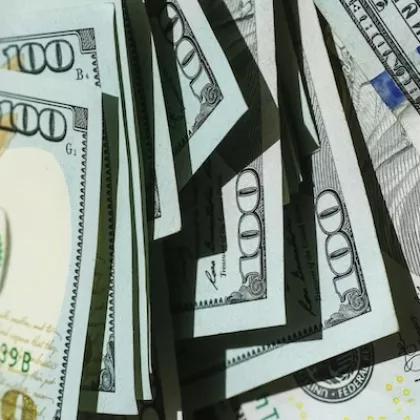What currency crises can teach us about cryptocurrency

What currency crises can teach us about cryptocurrency
September 21, 2022 | by Sevin Yeltekin
The story of currency collapse is a story as old as time. Turkey, my home country, is writing a fresh new chapter as it navigates a currency crisis. In the first half of 2022, the Turkish lira lost nearly a quarter of its value and the downward spiral continues.
Earlier this year, an $18 billion cryptocurrency called TerraUSD (UST) publicly imploded, shaking investor confidence in the cryptocurrency market as a whole.
On the surface, there is no apparent connection between these two situations. But if we look more closely, we can see how both reveal the consequences of a currency that is neither stable nor fully convertible. If those who create and own cryptocurrency want to avoid the fate of countries like Turkey, they should learn from those who came before them.
Below, I share four lessons that currency crises can teach us about cryptocurrency:
1) Currency must be a good store of value.
Thanks to runaway inflation, no one considers the Turkish lira a good store of value these days. It depreciates too fast. If the value of the Turkish liras in your checking account is worth $1000 today and $900 the next month, you don’t want to take a risk by leaving it in that account. In a high-inflation environment, you don’t want to hold onto something that is a poor store of value. Cryptocurrencies are up against the same problem. In the month following UST’s collapse, the total cryptocurrency market cap tumbled from $1.7 trillion to $900 billion. UST was an algorithmic coin, backed only by computer code, versus a stablecoin pegged to a non-crypto asset like the U.S. dollar. But even stablecoins like Tether have recently taken a considerable market hit. That kind of volatility signals to investors that cryptocurrency may not be a reliable store of value.
2) Currency must be a viable medium of exchange.
When a currency is a poor store of value, it also becomes a poor medium of exchange. In August 2021, the Turkish exchange rate was 8 liras to a dollar. In June 2022, it was 17 liras to a dollar. In these types of situations, people begin buying all the stable foreign currencies their government allows. In many cases, they even list the prices of real estate or other assets in dollars or euros.
To succeed as a currency, cryptocurrency must find a way to be a reliable medium of exchange. A major barrier to achieving this is lack of insurance. If you have Tether stock worth $1 million, you can’t really convert it into $1 million USD. Similarly, if everyone tried to withdraw all their money from a commercial bank ATM at the same time, only about 5% would succeed, because their bank wouldn’t have the majority of their money on hand. But here is the difference: If that bank goes bankrupt, up to $500,000 held in a checking account is protected by federal deposit insurance. Without offering this kind of insurance, cryptocurrencies are even less desirable as a form of currency.
3) Currency must offer something to the market.
A currency that brings real value to the market is a currency that people want to hold and exchange. It solves the problem of double coincidence of wants and reduces transaction costs instead of creating them. When that fails to hold true, a currency is heading for a swift demise. Cryptocurrencies have a steeper hill to climb in providing real value than traditional currencies. The ones that succeed will solve financial problems that other currencies cannot, like providing a platform for moving money more efficiently than the traditional banking system, reducing transaction costs, or creating new market access for a previously excluded demographic. Without something unique to offer, a cryptocurrency is a novelty, not a value proposition.
4) There is no easy exit out of a peg.
In times of crisis, countries like Turkey try to defend the value of their currency by creating an artificial demand; buying liras in the foreign exchange market, and paying for it with government reserves of euros and dollars. With limited reserves, they can’t do this in perpetuity. Eventually, their reserves run out and currency devaluation is imminent. Turkey has been here before. During the country’s banking crisis of 2000-01, it was forced to abandon its peg to a mixture of the dollar and the euro in favor of letting the lira float. We have seen this story repeat time and again, from the 1997 Asian Financial Crisis to the long, tormented slide of the Argentine peso after Argentina was forced to de-peg its currency from the U.S. dollar in 2002.
If sovereign nations can’t make their pegs work or exit gracefully, I have even less confidence that the creators of cryptocurrency have cracked the code. In addition to UST, stablecoins like DEI have also recently lost their peg. Ultimately, there is no perfectly stable coin. In times of trouble, cryptocurrencies have very little leverage to pull. When people are selling en masse and it becomes expensive to maintain a peg, they are unlikely to hold strong. Then, after the lose their peg, their value will plummet.
The bottom line.
It’s hard enough to create a currency that stores value, is a viable medium of exchange, and offers something to the market. It’s harder still to pull this off in an environment where there are almost no barriers to entry.
In the world of cryptocurrency, the possibility that a coin’s value will collapse to zero is very plausible—and, at this point in time, far more likely than the prospect of turning a substantial long-term profit. It’s nearly impossible for a pegged exchange rate, even one with a government backing it, to maintain its peg in perpetuity or exit from one successfully. I’m even more skeptical about the ability of cryptocurrencies to maintain a peg or exit without entering a death spiral.
Just because someone uploads a new currency onto an app and makes it digital doesn’t mean it's viable or valuable. There are far more conditions to meet to create something of long-term value. Will the makers of cryptocurrencies learn the lessons of past currency crises or our long history of monetary systems? I doubt it, but only time will tell.


Sevin Yeltekin is the Dean of Simon Business School.
Follow the Dean’s Corner blog for more expert commentary on timely topics in business, economics, policy, and management education. To view other blogs in this series, visit the Dean's Corner Main Page.











